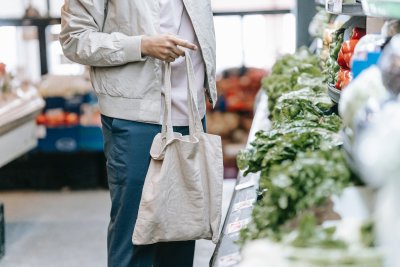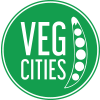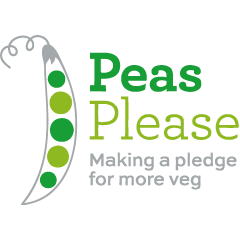Cost of living is driving down vegetable consumption
A new report by VegPower has found that that the increased price of groceries has reduced fresh vegetable purchasing across the UK, with nearly half of lower income families buying less fresh veg.

A person buying fresh vegetables at the supermarket. Credit: Michael Burrows | Pexels
The cost of living has been on the rise in the UK since the start of 2021. With inflation this February reaching levels unseen in 30 years and energy bills ballooning, households are feeling the squeeze. It is estimated that in 2023, another 1.3 million people will fall into absolute poverty, of which 500,000 will be children. It is already clear that household food insecurity has been rising and will continue to rise, but how will the cost of living impact the nature of the nation’s diet?
VegPower, a not-for-profit organisation which inspires kids to eat more vegetables, best known for the Eat Them to Defeat Them campaign, recently uncovered that concerning numbers of families are reducing the amount of fresh vegetables they are purchasing, due to the rising price of groceries. The internal report, available to subscribing members, found that 26% of people that responded to a YouGov survey have bought fewer fresh vegetables recently because of higher prices at the checkout. The figure rises to 49% for families with children and a household income of under £30,000.
That means that nearly half of lower income families have reduced their consumption of vegetables due to the increased cost of living.
Over half of people choose to buy fresh vegetables that are being sold at a discount price, rising to 64% for low income families. This shows just how important price is in deciding the amount of vegetables households will purchase.
There is some good news: the affordability and convenience of frozen vegetables have resulted in people buying a wider variety of these. Most frozen vegetables cost less than half the price of their fresh counterpart – as little as 75p-£1.50 per kilo – which could mean these will be crucial for families to maintain a healthy diet as the cost of living crisis deepens.
The authors of the report are concerned that vegetables can often be seen as a non-essential item, and so are one of the first items to be cut when families feel a squeeze on finances. There is a lot of work to be done to ensure that the cost of living crisis does not undermine people's ability to access healthy, affordable, sustainable diets.
04/04/2022





